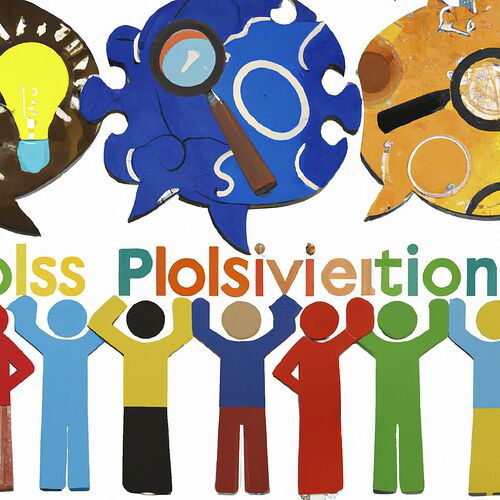Introduction
Problem-solving skills are essential in both personal and professional life. Whether you are facing a complex issue at work or trying to find a solution to a personal problem, having strong problem-solving skills can make a significant difference.
In this article, we will explore five effective ways to improve your problem-solving skills:
- Develop a systematic approach
- Practice critical thinking
- Seek different perspectives
- Learn from past experiences
- Embrace creativity and innovation
1. Develop a systematic approach
Developing a systematic approach is crucial for effective problem-solving. It involves breaking down complex problems into smaller, more manageable parts.
By following a step-by-step process, you can analyze the problem, identify potential solutions, and evaluate the best course of action.
For example, if you are trying to solve a work-related issue, you can use the following systematic approach:
- Define the problem: Clearly identify what the problem is and what needs to be solved.
- Gather information: Collect all relevant data and information related to the problem.
- Generate possible solutions: Brainstorm different ideas and potential solutions.
- Evaluate options: Assess the pros and cons of each solution and determine the most effective one.
- Implement the solution: Take action and put the chosen solution into practice.
- Evaluate the results: Monitor and evaluate the outcomes of the solution. Make adjustments if necessary.
2. Practice critical thinking
Critical thinking is a vital skill for effective problem-solving. It involves analyzing and evaluating information objectively, without biases or preconceived notions.
To improve your critical thinking skills, you can:
- Ask questions: Challenge assumptions and seek evidence to support or refute ideas.
- Consider different perspectives: Look at the problem from various angles to gain a comprehensive understanding.
- Use logic and reasoning: Apply logical reasoning to assess the validity and reliability of information.
- Think creatively: Explore alternative solutions and think outside the box.
3. Seek different perspectives
When faced with a problem, seeking different perspectives can provide valuable insights and solutions that you may not have considered.
You can seek different perspectives by:
- Consulting others: Talk to colleagues, mentors, or experts in the field to gain their insights.
- Encouraging diverse opinions: Create an environment where everyone feels comfortable sharing their thoughts and ideas.
- Listening actively: Pay attention to what others have to say and consider their viewpoints.
4. Learn from past experiences
Past experiences can be valuable sources of learning and improvement. Reflecting on past problem-solving experiences can help you identify patterns, learn from mistakes, and discover effective strategies.
Ask yourself:
- What worked well in the past?
- What didn't work?
- What could have been done differently?
By analyzing past experiences, you can gain valuable insights that can be applied to future problem-solving situations.
5. Embrace creativity and innovation
Creativity and innovation can open up new possibilities and solutions to problems. By thinking outside the box and embracing new ideas, you can find unique and effective solutions.
Here are some ways to embrace creativity and innovation:
- Brainstorming: Generate a large number of ideas without judgment or criticism.
- Encouraging diverse perspectives: Create an environment where different ideas are welcomed and valued.
- Experimenting: Try out new approaches and solutions to see what works best.
- Staying open-minded: Be willing to consider unconventional ideas and approaches.
Conclusion
Improving your problem-solving skills is a valuable investment that can benefit you in various aspects of life. By developing a systematic approach, practicing critical thinking, seeking different perspectives, learning from past experiences, and embracing creativity and innovation, you can become a more effective problem solver.
Remember, problem-solving is a skill that can be honed and improved with practice. So, start applying these strategies and watch your problem-solving abilities grow.
Did I miss anything? Add your comments below!
